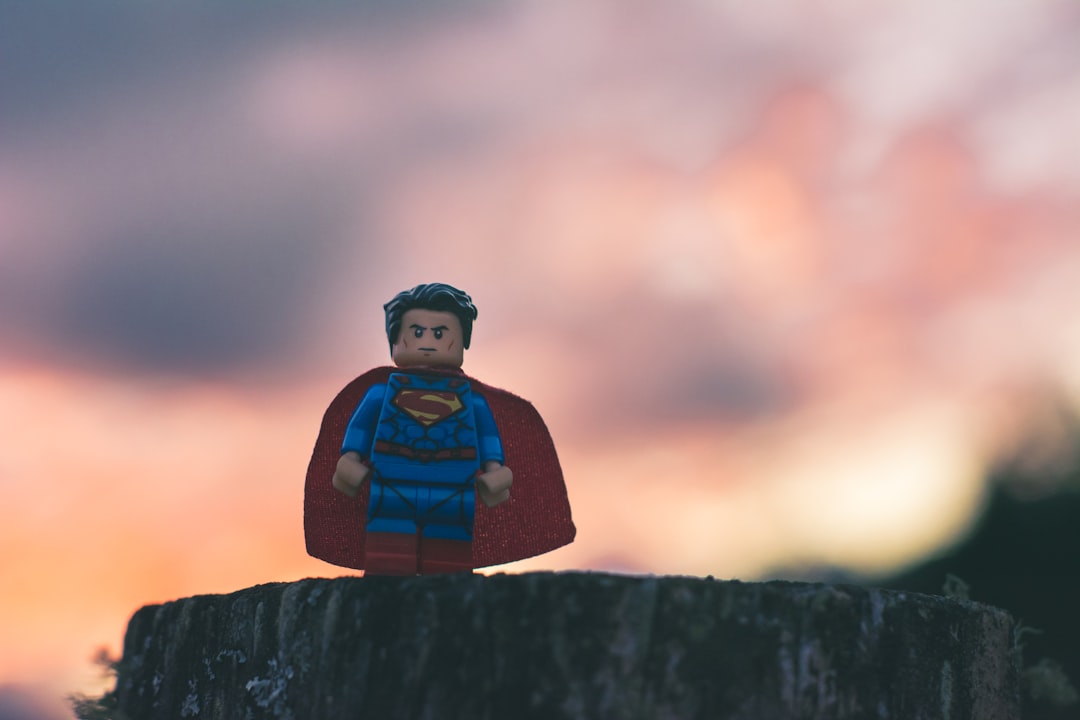Weekly Devotion: We Don't Need Another Hero
The one who comes to bring salvation will not do so by leaping tall buildings in a single bound

On Palm Sunday, we remember a Jewish man from another place and time who came to earth and displayed strange and mysterious powers. This man is loved by many, but he also has enemies who want to destroy him. This man goes around helping people, using the powers he has for good. In return, some people see him as a god and give him worship.
Yes, it is a special day to remember this man whose name is ....Superman.
Superman is probably the most recognizable of the comic book superheroes, with Batman a close second. Many of us here have seen the movies, watched the old TV shows, enjoyed the cartoons, and enjoyed the comic books. Superman epitomizes what it means to be an American.
He is also the greatest Jewish superhero. Superman's creators, Jerry Seigel and Joe Shuster, were Jewish kids from California. Both came from immigrant families. Superman is also an immigrant of sorts, being from Krypton. Some believe that Seigel and Shuster used the Golem from Jewish mythology as the basis for Superman. The Golem was a supernatural creature of immense strength that would protect people, especially the Jews who lived in Europe and faced progroms.
Their idea of an alien superhero was created against the backdrop of a time of rising anti-Semitism in America. Increased immigration led to a resurgence of the Klu Klux Klan. They feared Jews because some believed they spread communism, unionism, and miscegenation, or the mixing of the races. Superman was thrust into the fight against the Klan. Superman's Jewishness was toned down after World War II as America became more accepting of Jews, but his otherworldliness was still present.
Superman is sometimes thought of as a god. Our interest in superheroes, especially in this day and age, is that we want a hero, someone who will save us. We like to think of God as a superhero who will come to our rescue when things go wrong.
But Jesus doesn't act like a superhero. He may come from a different place, but he acts pretty ordinary. On Palm Sunday he shows his ordinary nature.
Jesus enters Jerusalem on a donkey that was never ridden. It was not unusual for people to use donkeys for transportation. In ancient times, horses were only used for war. Kings rode on donkeys as a symbol of peace. It was customary for visiting dignitaries to lay down leafy branches, another sign of their kingship. And the cries of "Hosanna! were cries for help. In Hebrew, hosanna means "to save. The people were looking for deliverance from Roman rule. Jerusalem had been a hotbed of Jewish revolutionaries itching for a fight with the Romans, and perhaps the people shouting "Hosanna" were hoping that this Jesus would be the one to finally send the Romans packing.
But Jesus isn't that kind of hero. The people who rejoiced on the day Jesus entered Jerusalem would be disappointed that he could not challenge the Romans, at least not in the way they expected.
Things are not so different today. We tend to think of God as a superhero, someone who answers all our prayers, gets us out of trouble, and always helps us get that parking space. If God in Jesus couldn't save people the way they wanted to be saved, God probably won't save us the same way. Sometimes prayers aren't answered. Sometimes we get into trouble where no one comes to the rescue, and sometimes we don't get that preferred parking space.
Jesus is a different kind of king or hero. We will see Jesus washing the feet of his disciples, an act of service. He will allow himself to be arrested, tortured, and left to die on a cross. The one who comes to bring salvation will not do so by leaping tall buildings in a single bound, but by giving his life for the sake of the world.
Jesus is the one who can stand with us as we go through our trials because He has faced them Himself. God gives us hope when things seem dark, not that things will get better, but that God is present. We know that the life, death, and resurrection of Jesus frees us from the bonds of sin and sets us free to love one another.
In 1985, singer Tina Turner released a song called "We Don't Need Another Hero". It was on the soundtrack of the third installment of the Mad Max series, the franchise about a man trying to survive in a post-nuclear apocalypse Australia. I always thought the lyrics of this song were kind of weird, but in light of this sermon, it suddenly makes sense. The song is written from the perspective of children, survivors of a plane crash who are left alone in the desert and near a place called the Thunderdome, a gladiatorial arena where people fight to the death. The song is about not looking for salvation from the hellish landscape they lived in. Turner wrote it believing that the only savior that could come was the savior within.
Tina was partly right. We don't need another hero. We don't need someone to swoop in and save us from danger. But we do need a savior. We need someone to redeem us, love us, forgive us, and set us free.
We don't need another hero. We need a Savior.

